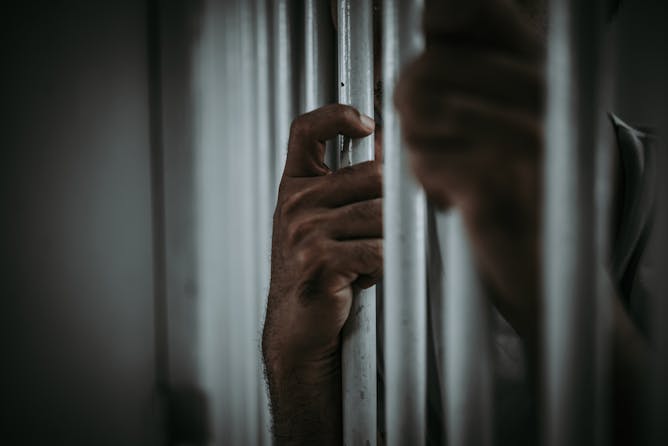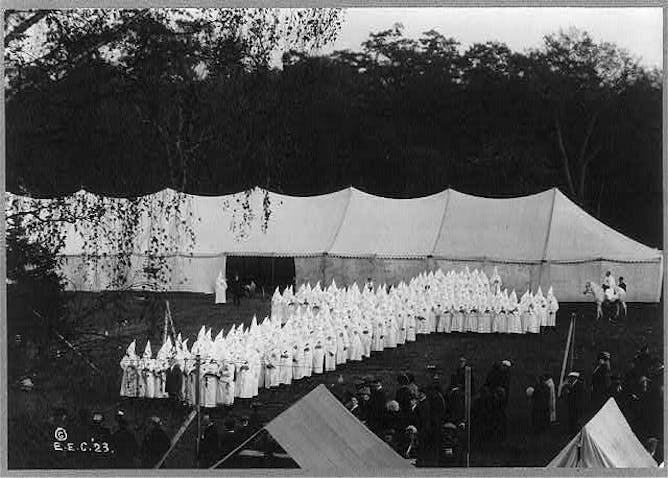|
|
|
Editor's note
|
|
When Stanley Andrisse was sent to prison in his early 20s for 10 years for drug trafficking, he was branded as a career criminal. Today, Andrisse is an endocrinologist and professor at Howard University and Johns Hopkins University medical schools. In an essay, he argues for why having served time behind bars should not be an obstacle to higher education.
Growing concern about plastic waste is spurring interest in making biodegradable versions from organic sources. Ideally these substitutes would be strong enough to perform well but readily broken down by microbes at the end of their useful lives. Michigan State University biochemist Danny Ducat sees promise in bioplastics, with a major caveat: They will require big investments in composting systems to dispose of them.
The white supremacist rally in Charlottesville one year ago cemented the idea, common among many Americans, that racism is a “Made-in-the-South” problem. But, scholars Brian J. Purnell and Jeanne Theoharis write, understanding racism in America in 2018 means not only examining the long history of racist practices and ideologies in the South, but also the long history of racism in the Jim Crow North.
|
Jamaal Abdul-Alim
Education Editor
|

|
|
Top stories
|

a prison bars.
Stanley Andrisse, Howard University
Stanley Andrisse was once branded a career criminal and served time in prison. Today, he is a professor at two medical schools and an advocate for higher education for those who've served time.
|

Food packaging is one of the top uses for plastic in consumer goods.
BravissimoS
Danny Ducat, Michigan State University
Bio-based plastics made from natural sources break down more easily than conventional plastic, without producing toxic byproducts. But for this to happen they have to be composted, not buried in landfills.
|

The KKK assembled in Portland, Maine, in 1923.
Library of Congress
Brian J Purnell, Bowdoin College; Jeanne Theoharis, Brooklyn College
One year after Charlottesville's white supremacist march, US racism is seen primarily as a Southern-grown problem. But Jim Crow laws started in the North, which has a long history of systemic racism.
|
Politics + Society
|
-
Georgiann Davis, University of Nevada, Las Vegas
Christine Hallquist this week became the first trans person to win a major party's gubernatorial nomination. The percentage of trans adults has doubled since 2008. What's responsible for that change?
-
Steven Feldstein, Boise State University
Violence and uncertainty has followed Zimbabwe's first modern election without Robert Mugabe. That's not surprising: After 38 years of dictatorship, it takes more than a vote to build democracy.
-
Vincent Schiraldi, Columbia University
Programs that allow individuals to be supervised in the community instead of in prison are growing in a way that is not sustainable and is contributing to mass incarceration rather than relieving it.
|
|
Science + Technology
|
-
Stanley Mertzman, Franklin & Marshall College
A geologist explains the basics about these elements, which are crucial for modern electronics.
-
Marios Chryssanthopoulos, University of Surrey
Bridge engineering does not end when construction finishes and traffic starts to flow.
|
|
|
|
|
|
Trending on site
|
-
Luis R. Fernandez-Carril, Universidad Nacional Autónoma de México (UNAM)
A philosopher's thoughts on how an individual can overcome the feeling of helplessness in the face of global climate change.
-
Bruce Blumberg, University of California, Irvine; Raquel Chamorro-Garcia, University of California, Irvine
The most common explanation for obesity is overeating calorie-rich foods and a sedentary lifestyle. But new studies suggest that chemicals in our environment might be another cause.
-
Karl Havens, University of Florida
Red tide and a blue-green algae outbreak are fouling hundreds of miles of coast, killing fish and driving tourists away from beaches. Some of the causes are natural, but human actions play a big role.
|
|
|
|
| |
| |
|
|
|
|
|
|
|